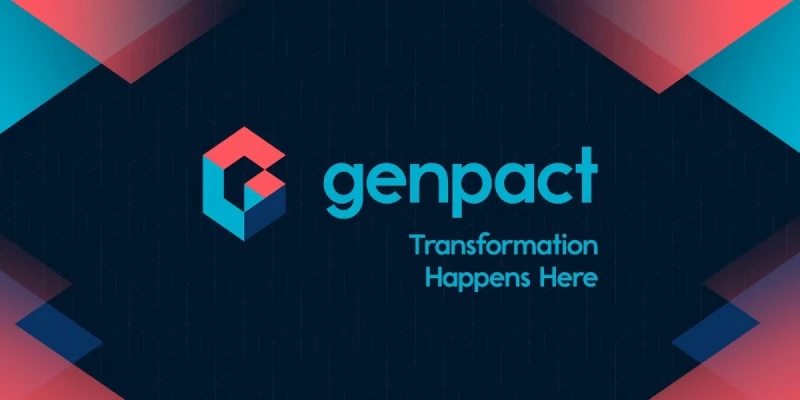Introduction: Database Engineer at Google: A Complete Guide
Company has revolutionized the way businesses store, manage, and analyze data. With the growing need for scalable and secure databases, company is looking for skilled Database Engineers to design, optimize, and manage cloud-based database systems. This role plays a crucial part in data migration, security, and performance tuning for organizations shifting to Google Cloud. If you’re interested in joining company as a Database Engineer, this guide will provide you with a comprehensive understanding of the role, its requirements, and career opportunities.
What is Google Cloud Platform (GCP)?
Google Cloud Platform (GCP) is a suite of cloud computing services that enables businesses to manage and analyze massive amounts of data efficiently. Some of its major services include:
- Cloud Spanner – A globally distributed, scalable database.
- Cloud SQL – A fully managed relational database.
- BigQuery – A powerful analytics data warehouse.
- AlloyDB – An advanced relational database for demanding workloads.
These cloud-based solutions make data storage, retrieval, and analysis faster and more reliable, which is why companies are increasingly adopting GCP.
Role of a Database Engineer at Google
A Database Engineer at company plays a crucial role in designing, deploying, and managing databases for enterprises migrating to Google Cloud. Their primary responsibilities include:
-
Database Architecture & Design
- Designing scalable, cost-effective, and secure database solutions.
- Implementing best practices for database performance and optimization.
- Ensuring high availability and disaster recovery strategies.
-
Data Migration & Modernization
- Leading data migration projects from on-premise to cloud.
- Utilizing Google & third-party tools for seamless data movement.
- Ensuring data integrity, consistency, and security during migration.
-
Security & Compliance
- Implementing encryption techniques like HSM, envelope encryption, and KMS.
- Ensuring compliance with GDPR, HIPAA, and other data privacy regulations.
- Managing access controls and role-based permissions for database security.
-
Performance Optimization
- Troubleshooting and resolving database performance issues.
- Implementing indexing strategies, partitioning, and caching mechanisms.
- Monitoring database performance and fine-tuning configurations.
-
Stakeholder Engagement & Collaboration
- Working with product managers, engineers, and clients to deliver scalable solutions.
- Providing technical guidance and support for database best practices.
- Conducting training and workshops to educate teams on Google Cloud Databases.
Required Skills & Qualifications
Educational Background
- Bachelor’s degree in Computer Science, Engineering, Mathematics, or equivalent practical experience.
Technical Skills
✅ Database Expertise: MySQL, PostgreSQL, Oracle, MongoDB (NoSQL)
✅ Programming Knowledge: Java, Python, SQL, PL/SQL
✅ Cloud Experience: Hands-on experience with Google Cloud (GCP)
✅ Data Security & Encryption: Experience with HSM, Key Management Systems
✅ Database Migration Strategies: Proven experience in large-scale data migrations
✅ Cloud Native Databases: Familiarity with Cloud Spanner, BigTable, and AlloyDB
Soft Skills
💡 Problem-solving ability for database troubleshooting.
🤝 Collaboration skills to work with multiple stakeholders.
📊 Strong analytical skills for database optimization.
Google Cloud Databases & Their Use Cases
-
Cloud Spanner
-
- A fully managed, scalable, globally distributed relational database.
- Use case: Large-scale financial transactions, gaming leaderboards.
-
Cloud SQL
-
- Managed database service for MySQL, PostgreSQL, and SQL Server.
- Use case: Web applications, e-commerce platforms.
-
BigQuery
-
- Serverless data warehouse for real-time analytics.
- Use case: Business intelligence, data science projects.
-
AlloyDB
-
- Advanced relational database for enterprise workloads.
- Use case: High-performance transactional applications.
Database Migration Strategies
When migrating databases to company, engineers follow these key strategies:
-
Lift & Shift
-
- Migrating databases as-is to the cloud without major modifications.
- Suitable for legacy applications requiring minimal changes.
-
Replatforming
-
- Moving databases with minor optimizations to leverage cloud benefits.
- Example: Migrating MySQL from on-premise to Cloud SQL.
-
Refactoring
-
- Redesigning the database to fully utilize cloud-native features.
- Example: Moving from PostgreSQL to Cloud Spanner for scalability.
-
Hybrid Cloud Approach
-
- Combining on-premise and cloud databases for gradual transition.
- Ideal for businesses that need a phased migration strategy.
Security & Encryption
Google Cloud offers robust security features for database protection:
-
Encryption Methods
-
- Symmetric & Asymmetric Encryption – Protects sensitive data at rest & in transit.
- Envelope Encryption – Uses Google’s KMS for key management.
- Hardware Security Modules (HSMs) – Provides extra layer of security.
-
Role-Based Access Control (RBAC)
-
- Restricts database access based on user roles.
- Ensures least privilege principle.
-
Compliance & Auditing
-
- Google Cloud Databases comply with ISO 27001, PCI DSS, HIPAA, and GDPR.
- Audit logging for tracking database activity.
Career Growth & Salary Insights
A Database Engineer at Google can grow into multiple roles:
- Senior Database Engineer – Leads large-scale database projects.
- Cloud Solutions Architect – Designs full cloud solutions for enterprises.
- Data Engineer – Focuses on data analytics and pipeline optimizations.
- Database Security Specialist – Specializes in encryption and compliance.
Salary Range
💰 Entry Level: $90,000 – $120,000 per year
💰 Mid-Level: $130,000 – $160,000 per year
💰 Senior Level: $170,000 – $200,000+ per year (Salaries may vary based on location, experience, and Google’s compensation policies.)
How to Apply & Interview Process
To apply for the Database Engineer role at Google:
📌 Step 1: Visit Google Careers & submit your resume.
📌 Step 2: Take an online assessment on SQL, database management, and cloud concepts.
📌 Step 3: Attend technical interviews covering:
- SQL queries & database optimizations.
- Google Cloud Database solutions.
- Data migration strategies.
📌 Step 4: Attend behavioral interviews on teamwork, leadership, and problem-solving.
📌 Step 5: Receive an offer & start your journey with Google Cloud! 🚀
Conclusion
Becoming a Database Engineer at Google is a rewarding career move for those passionate about cloud computing, data security, and performance optimization. With the increasing adoption of Google Cloud, the demand for skilled database engineers is at an all-time high. By gaining expertise in Google Cloud Databases, migration strategies, and encryption techniques, you can build a successful career in cloud database engineering.
If you’re ready to take your career to the next level, apply for a Database Engineer role at company today! 🚀






